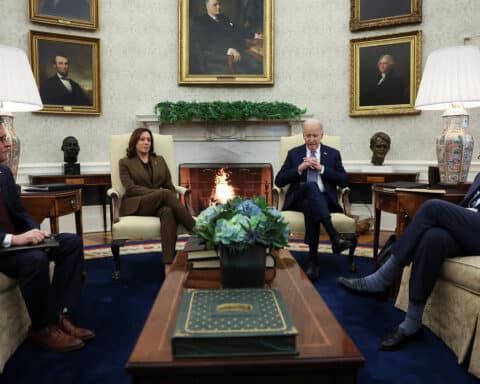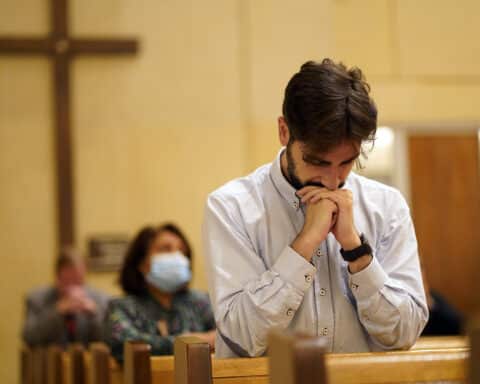Former president Donald Trump recently declared our need as Americans to support in-vitro fertilization (IVF). He talked about the “precious” babies who are produced by the process. Of course, all children are precious. He didn’t mention, however, in a statement that was more broadly about abortion — and leaving the matter to the states now that Roe v. Wade is no more — the embryos that get put on ice or die in the expensive IVF process.
But I don’t really want to talk about Trump or the current president, Joe Biden, or politics. We frankly do too much of that, I say as a recovering political junkie. The reason our politics are so bad is because we are.
There has been a movie in theaters recently based on a Christian novel that involves an IVF theme. It’s a romance that does a tender job of showing the complications that can come from taking life into our hands in a way we were not meant to. The novel and the movie are both called “Someone Like You.”
While recently interviewing Karen Kingsbury, the author, who is also responsible for the movie, I found myself apologizing to her. It’s not the first time I’ve done such a thing. She’s a Christian, but not a Catholic. And the Catholic Church has so much to offer the culture on these issues. And yet it’s been argued about, suppressed and confused. I told her — and I hope this is true — that using her storytelling skills could give courage to the rest of us who are afraid to have conversations about some of the most intimate issues because we don’t want to hurt people.
Catholics need to speak up
Years ago, I spent time doing Catholic media training, mostly on religious liberty and conscience issues. Most people would say that the reason they don’t speak out on these kinds of things — crassly referred to sometimes as the “pelvic issues” — is because they don’t want to do more harm. They don’t want to add to any confusion, but even more so, hurting people more is the last thing a Christian wants. And yet, as a matter of truth and justice, we can’t not go there. And we can’t let these issues become just another political pawn.
And what has become clear in recent weeks is that people have no idea. They have no idea of the false hope that often comes with IVF. They may have no idea about the cost — it is not available to everyone. I hate to be cynical, but words of support in response to a court ruling and legislation might have to do with donors. The embryonic lives that are lost or put in limbo are also not something that is common knowledge.
A culture was set in place in our Church when there was pushback against Pope Paul VI’s encyclical Humanae Vitae. Mary Eberstadt, in her books “Adam and Eve After the Pill” and more recent “Adam and Eve After the Pill, Revisited,” likens the sexual revolution to the Cold War, its implications being so immiserating for human lives. That’s a controversial thing to say, because you’re not just talking about IVF and surrogacy but obviously about abortion and contraception, too. The reason I apologized to Kingsbury is because if we — successors to the apostles, Catholic academics, consecrated religious, and lay people all — had been testifying to the love that is possible when we follow God’s law of love, people wouldn’t be as hurt as they are.
A treasury of wisdom
The book and the movie are Hallmark-like, but Kingsbury is lighting a fire under us with them.
And under women especially. At the end of the Second Vatican Council, Pope Paul VI told the women of the world: “Our technology runs the risk of becoming inhuman … Hold back the hand of man who, in a moment of folly, might attempt to destroy civilization.” I love men, and if we love men, we must lead in these areas. Otherwise, we are going to listen to men who have no business talking about these issues other than for personal gain making headlines with them.
This isn’t a political column, and IVF isn’t a political issue. We have a treasury of wisdom to offer the culture that will help with so much pain. Scripture, as we know, talks about orphans quite often. There are children alone in need of love in the foster care system. What more can we do as individuals and communities — parishes — in the Church to address that and to see the need not just for fulfilling our own hopes and dreams but for loving children who are otherwise lost in a system that cannot love them like a family can?
The next time you hear a politician talk about one of these most intimate issues, the question we need to ask ourselves is: What more can I do so people are not further hurt by this becoming just another political issue?





